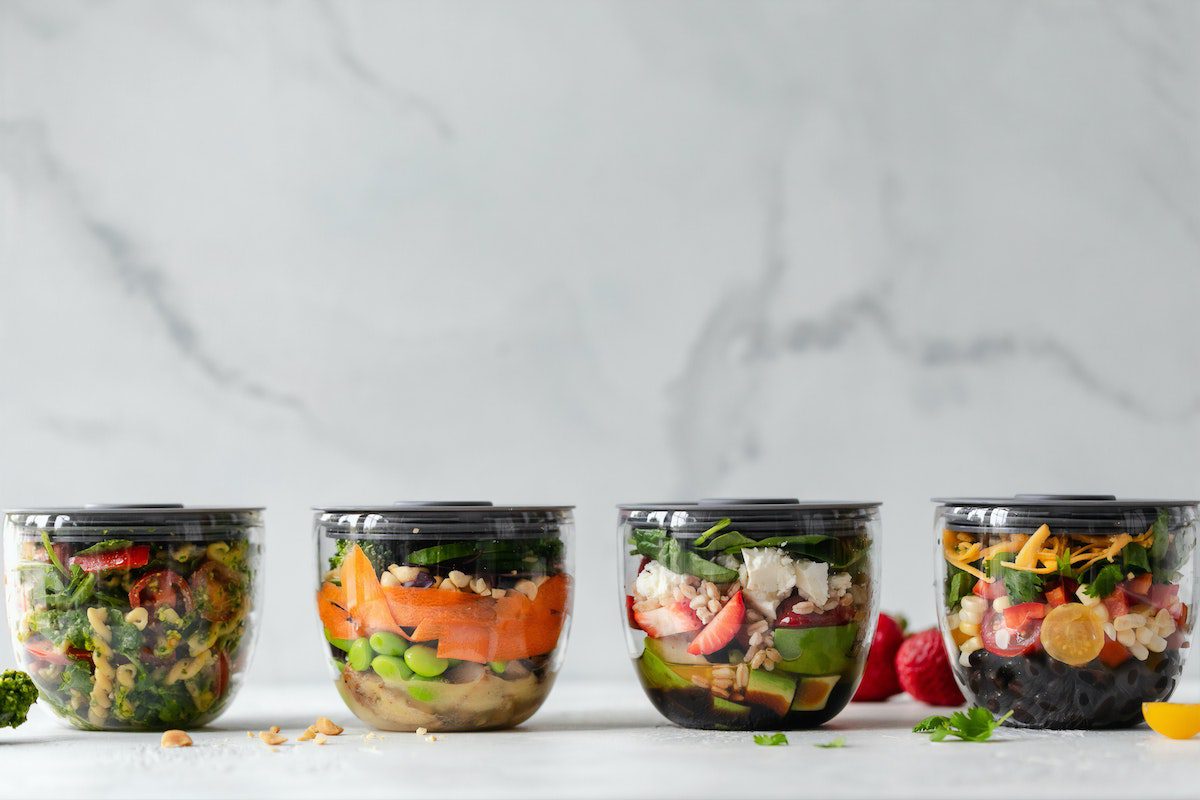By, Chelsea Fechtner, MScN, CN
As a nutritionist, the majority of my workday is spent talking about food! Naturally, this makes meal planning one of my favorite wellness routines that supports me in eating healthy meals throughout the week. If you don’t have the same fondness for meal planning, I’m hoping that this post will allow you to see it in a more positive light!
To start, meal planning doesn’t have to look perfect. You don’t have to spend hours planning out recipes for a week’s worth of breakfasts, lunches, dinners, and snacks. And you definitely don’t have to spend all of your free time in the kitchen! Instead, consider that your unique meal planning strategy can be individualized to fit your unique needs and lifestyle.
Benefits of Meal Planning for Fertility & PCOS
Creating a meal planning habit can be supportive for those that are trying to conceive and/or manage PCOS symptoms for several reasons. Planning ahead to cook more meals at home will allow you to add in plenty of fertility-supportive foods like colorful produce, wild-caught fish and olive oil. Additionally, meal planning helps reduce the stress of making last-minute decisions about what to make for lunch and reduces skipped meals. Beyond health and wellness, meal planning will reduce food waste, save time, and even save money!
Meal Planning Basics
For those that are just starting out with meal planning, here are a few tips to help streamline the process:
- Schedule It: Set aside time each week to plan for the week ahead. Keep your calendar close by to reference, and determine which days will be better for cooking and which ones to designate leftovers to.
- Take Inventory: Take a look in the fridge to see what produce you have left over from the previous week and keep that in mind when planning meals for the week ahead.
- Make it Your Own: Consider creating a unique meal plan outline that’s aligned with you and your family’s needs by compiling your preferences. Think about which meals need to be accounted for and consider how long you want to be spending in the kitchen. Then you can choose the meals that you want to make.
- Simplify: After a couple of weeks, you’ll likely start building a repertoire of recipes that you enjoy. Take note of the fridge and pantry staples needed to prepare those recipes and keep a running list to refer back to so that you don’t have to start your grocery list from scratch each time.
- Follow Through: Write down your plan in a place that you can easily refer back to throughout the week and delegate tasks to family members as needed. Be sure to start small and allow for some flexibility to avoid feeling burnt out.
Meal Planning Resources
Consider your strengths and weakness with meal planning when exploring the resources below. For example, if you love to cook but tend to buy the same vegetables each week, then cooking seasonally could be helpful for you!
- Eat Seasonally: Eating a wide variety of colorful fruits and vegetables is supportive for egg quality and for decreasing inflammation. Cooking with seasonal produce can be a helpful tool for broadening your produce intake and is typically cheaper than out of season produce. Take a trip to the Farmers Market, invest in a vegetable CSA or simply notice what’s highlighted on display at the grocery store.
- Stay Organized: Choose a method for organizing your favorite recipes and meals such as a binder or online platform like Plan to Eat. Add a few recipes each week, and before you know it, you’ll have a collection to choose from!
- Meal Kits & Delivery Options: If you want to minimize your time in the kitchen each week, a healthy meal kit or meal delivery are great options. There are many options on the market today that support a variety of dietary needs and will allow you to eat healthier, no matter what your schedule looks like.
- Recipe Inspiration: Be sure to check out our Pinterest boards for recipe inspiration as you build your repertoire. We aim to include recipes that contain a source of protein, healthy fat and plenty of colorful produce!
As you can see, there are many ways to make meal planning more enjoyable and simple! I encourage you to choose one or two strategies from this post to try out and continue from there. Building a meal planning routine can take time and effort, but will pay off in the long run by allowing you to eat healthy balanced meals regularly.




